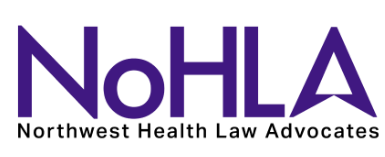Health care advocates and consumers should take heart that federal bills to improve health care access and affordability are advancing as far as politically possible in this divided Congress, even as the focus on impeachment hearings dims prospects for major legislation this year.
The key House committees favorably reported H.R. 3, now called the “Elijah E. Cummings Lower Drug Costs Now Act of 2019,” in honor of the late U.S. Representative. The bill would for the first time allow Medicare to negotiate prices with drug companies (our October blog post includes more details). It now includes provisions of the Medicare Extra Rx HELP Act of 2019, sponsored by Rep. Bradley Schneider (D-IL) and paralleling S. 691, introduced earlier by Sen. Bob Casey, Jr. (D-PA). Medicare Part D for prescription drugs began in 2006. Part D includes a Low-Income Subsidy program (Extra Help) with sliding-scale income and asset standards for full and partial relief from premiums, deductibles, and copayments. An estimated 12 million of the 43 million enrolled in Part D get Extra Help, worth an average of almost $5,000 per year, but out-of-pocket costs are burdensome for lower-income people who don’t qualify.
H.R. 3 would extend full help to all beneficiaries with income up to 200% of the federal poverty level (now people with 135% to 150% FPL income get only partial help) and would eliminate the asset limit (now only $7,730 for an individual to get full help), just as the Affordable Care Act did for Medicaid expansion and tax subsidies for plans purchased on the Exchange.
Predicting the likelihood of passage is perilous, especially in this volatile year. After the committee action, CNBC says the Lower Drug Costs Now Act has a high chance of House approval this year, and the GovTrack’s “Prognosis” (available for any bill) still rates it as 71% likely to be enacted, but now the odds look grim for significant drug pricing legislation this year.
Still, House committees advanced three more bills that highlight and would address serious gaps in Medicare coverage:
- The Medicare Vision Act of 2019, H.R. 4665, sponsored by Reps. Kim Schrier (D-WA 8th District) and Suzan Delbene (D-WA 1st), would expand Medicare Part B beyond covering cataract surgery and yearly glaucoma screenings for people at high risk. The bill would include routine eye exams, procedures, contact lens fitting services, and one pair of eyeglasses or a two-year supply of contact lenses. Schrier notes that 57% of Medicare beneficiaries with vision problems haven’t had eye exams in over a year and her concern as a doctor that undiagnosed eye conditions can limit physical activity and increase isolation, leading to deteriorating overall health.
- The Medicare Dental Act of 2019, H.R. 4650, sponsored by Robyn Kelly (D-IL), which would add a dental benefit to Medicare Part B. A joint letter of support from Families USA, Justice in Aging, Community Catalyst, and the Center for Medicare Advocacy, points out that two-thirds of Medicare beneficiaries do not have oral health coverage; forgoing oral care worsens other problems such as diabetes, heart disease, and obesity that consistent dental care can mitigate; so Medicare ends up paying for “costly, preventable medical problems that are the consequences of unmet oral health care needs.”
- The Medicare Hearing Act of 2019, H.R. 4618, sponsored by Rep. Lucy McBath (D-GA), would aid hearing aid coverage to Part B. Hearing aids cost an average of $2,300. Studies show that seniors with hearing loss are 32 % more likely to require hospitalization, 24% higher risk for cognitive impairment, suffer higher isolation and depression, and are more likely to develop dementia.
Blueprint introduced for state-led pathway to universal coverage
Adding to the mix of federal universal coverage bills mentioned in our September blog post is Rep. Ro Khanna (D-CA)’s approach of empowering states to lead the way toward national single-payer health care. On November 8, he introduced the State-Based Universal Health Care Act, H.R. 6097, which would allow individual states or regional groups of states to apply for a federal waiver to create universal health care systems by bundling federal funding streams (Medicare, Medicaid, CHIP, federal employee and military retiree plans, and Affordable Care Act (ACA) tax credits and cost-sharing reductions) and obtaining regulatory flexibility related to health benefits exchanges, the ACA employer mandate, and federal law that pre-empts state regulation of employer self-funded plans. The waiver request would have to provide for covering (with benefits equal to or greater than what federal beneficiaries get now) 95 percent of their residents within five years, taking further steps to cover the rest, and revising the plans if they fall short of the target. The bill would remove legal obstacles to states from moving forward on their own universal coverage plans.
Rep. Khanna’s press release includes praise from co-sponsor Rep. Pramila Jayapal (D-WA 7th District), who sponsored a similar bill last year, and from many Washington advocates. As David Loud, Puget Sound Advocates for Retirement Action’s representative to Health Care Is a Human Right-WA, said, “There is strong movement in a number of states to achieve universal and affordable health care at the state level,” and this bill would “help us win concrete victories along the way.”
– Charlie Mitchell, NoHLA Senior Staff Attorney


